Homage to the herb
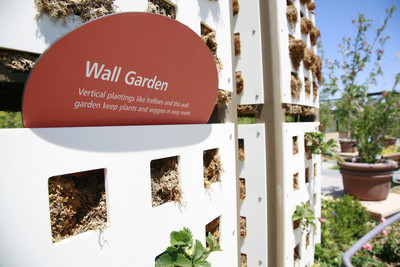
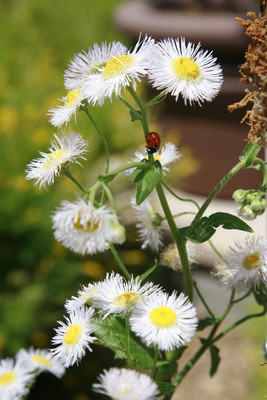
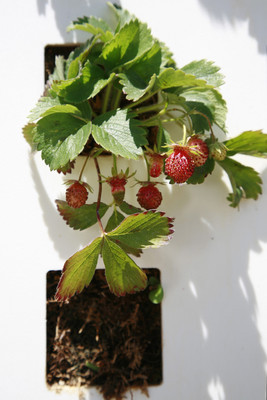
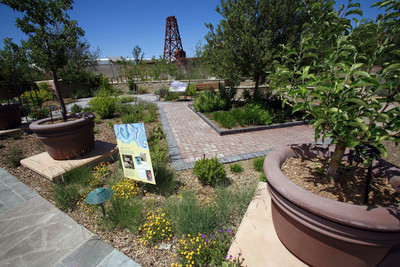
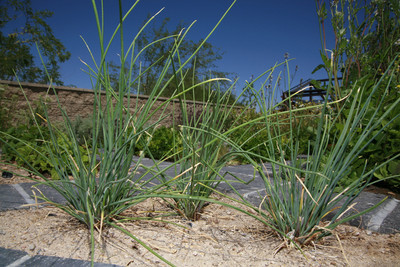

Herb gardens are fun and good for the psyche. Fun because when you’re preparing that special tomato sauce or mixing that potato salad, it’s fun to reach over and pick off a little rosemary, sage or dill and add it to your dish. And the psyche gets involved because there is the satisfaction that you, yes you, grew all those wonderful tasting herbs.
Pete Duncombe, curator of gardens at Springs Preserve in Las Vegas, said herbs are well-suited to Las Vegas because they originated in the Mediterranean in a similar climate.
“Our Southern Nevada environment functions the same as in the Mediterranean, which means wet winters and warm, dry summers,” he said. “Right now I’m growing over 100 species of herb plants at the Preserve, not all of them culinary. Many are classified as aromatic, ornamental and medicinal. Some native herbs that are best suited for the area include perennials such as sage, rosemary, thyme and oregano.”
An herb garden can be started with seeds or from small plants that have already sprouted in 4-inch pots. With seeds, begin indoors because the tender shoots that first appear are vulnerable to insects.
“Start the garden indoors and then transplant,” said Frank Rauscher, staff horticulturist and public relations manager for Star Nursery. “Or, if you buy sprouts, plant them and surround them with cedar mulch or plant marigolds among the herbs, as insects detest cedar and don’t like marigolds. And don’t forget that you’re going to be eating these herbs so avoid pesticides, even organic pesticides.”
Herb gardens can be grown in the backyard, on a small patio or in the kitchen.
“Many people are quite successful with their herb gardens growing basil, mint, cilantro, thyme, oregano and so much more,” he said. “But keep in mind that there are plants that enjoy sun and others that need shade. I recommend that all outdoor herb gardens have afternoon shade or else be shaded by a tree or something. The other thing is to establish good drainage, which means establishing a raised herb garden or planting them in some type of pot or container.”
Rauscher said there is still time to plant a garden since most herbs are frost tender rather than heat tender. His example is basil.
“If you plant basil in March,” he explained, “there are still cool evenings and basil, which is sensitive to cool weather, could be lost. On the other hand, rosemary and thyme do well in afternoon sun. I tell people they can start their herb gardens throughout the summer as long as it has some afternoon shade.”
Indoor plants need essentially the same conditions as herbs grown outdoors: sunlight (south or west window) and a well-drained, not too rich soil mix. An inch of gravel at the bottom of each pot should ensure good drainage.
The final decision is determining which herbs to plant.
If planting an herb garden for the first time, the following should survive beginners’ mistakes: winter savory, rosemary, sage, sweet basil, dill, mint, sweet marjoram, tarragon, thyme, chives, parsley and summer savory. Once established, leaves can be used in that tomato sauce or potato salad before they flower or, for a more potent flavor, after the plant has flowered.
AN HERBAL HISTORYHerbs have played an important part in all aspects of man’s life: politics, romance, religion, health and superstition.
Celery was used by the Abyssinians for stuffing pillows. Ancient Greeks and Romans crowned their heroes with dill and laurel. Dill also was used by the Romans to purify the air in their banquet halls.
Some herbs were given magical properties, probably because of their medicinal uses. In France during the Middle Ages, babies were rubbed with artemisia juices to protect them from the cold. Ancient Greeks used sweet marjoram as a valuable tonic and parsley as a cure for stomach ailments. Rosemary was eaten for its tranquilizing effects.
Chives, a common herb often found growing wild, had economic importance throughout Asia and many Mediterranean countries. Early Dutch settlers in this country intentionally planted chives in the meadows so cows would give chive-flavored milk.
Greek athletes used bruised mint leaves as an after-bath lotion and cleansing agent. It was later used to purify drinking water on long ocean voyages.












